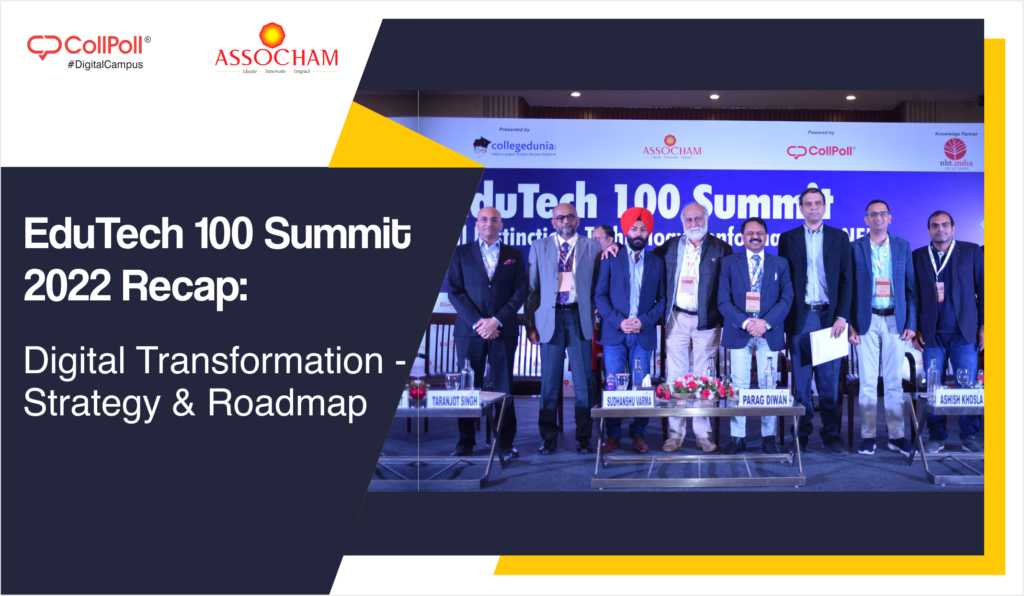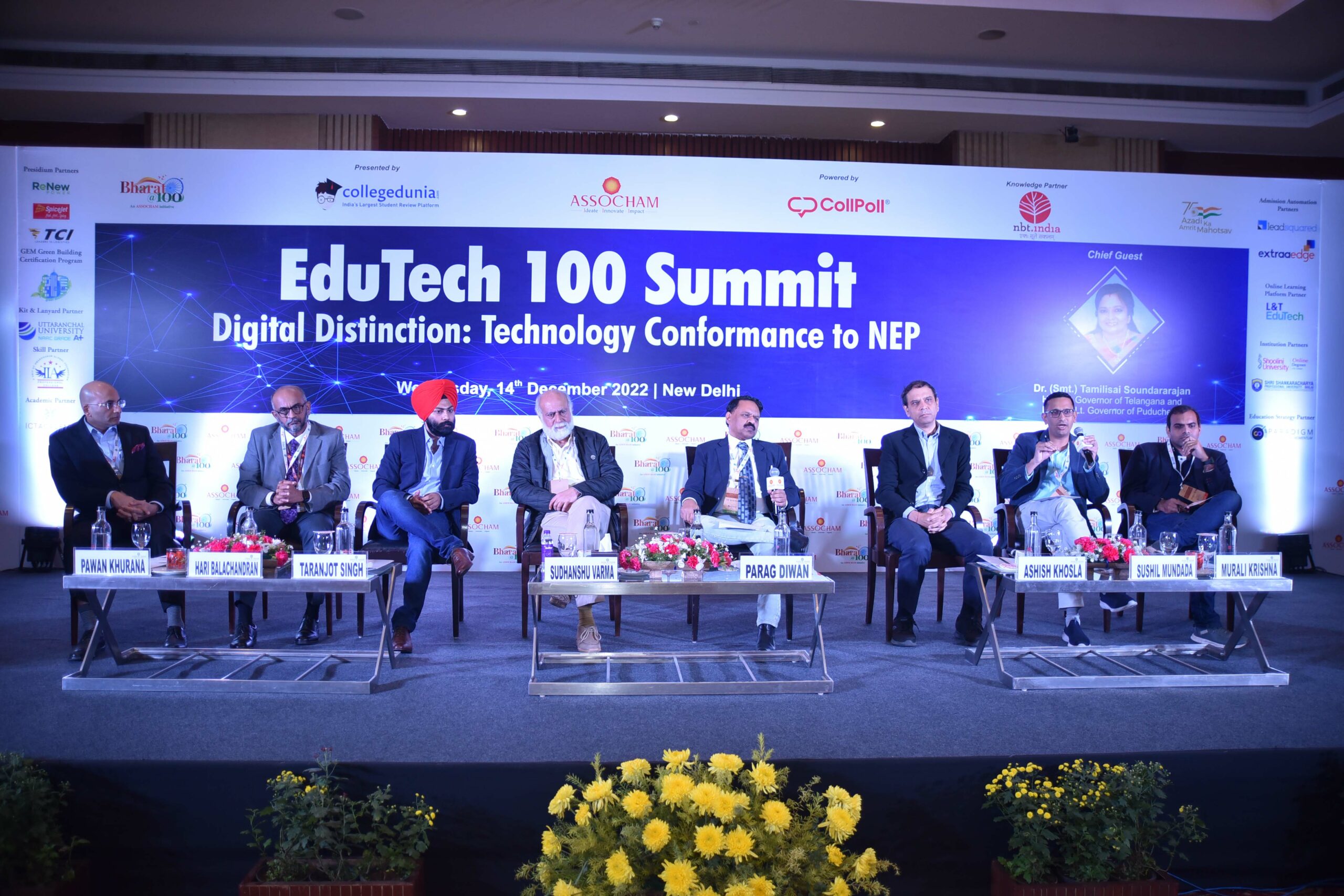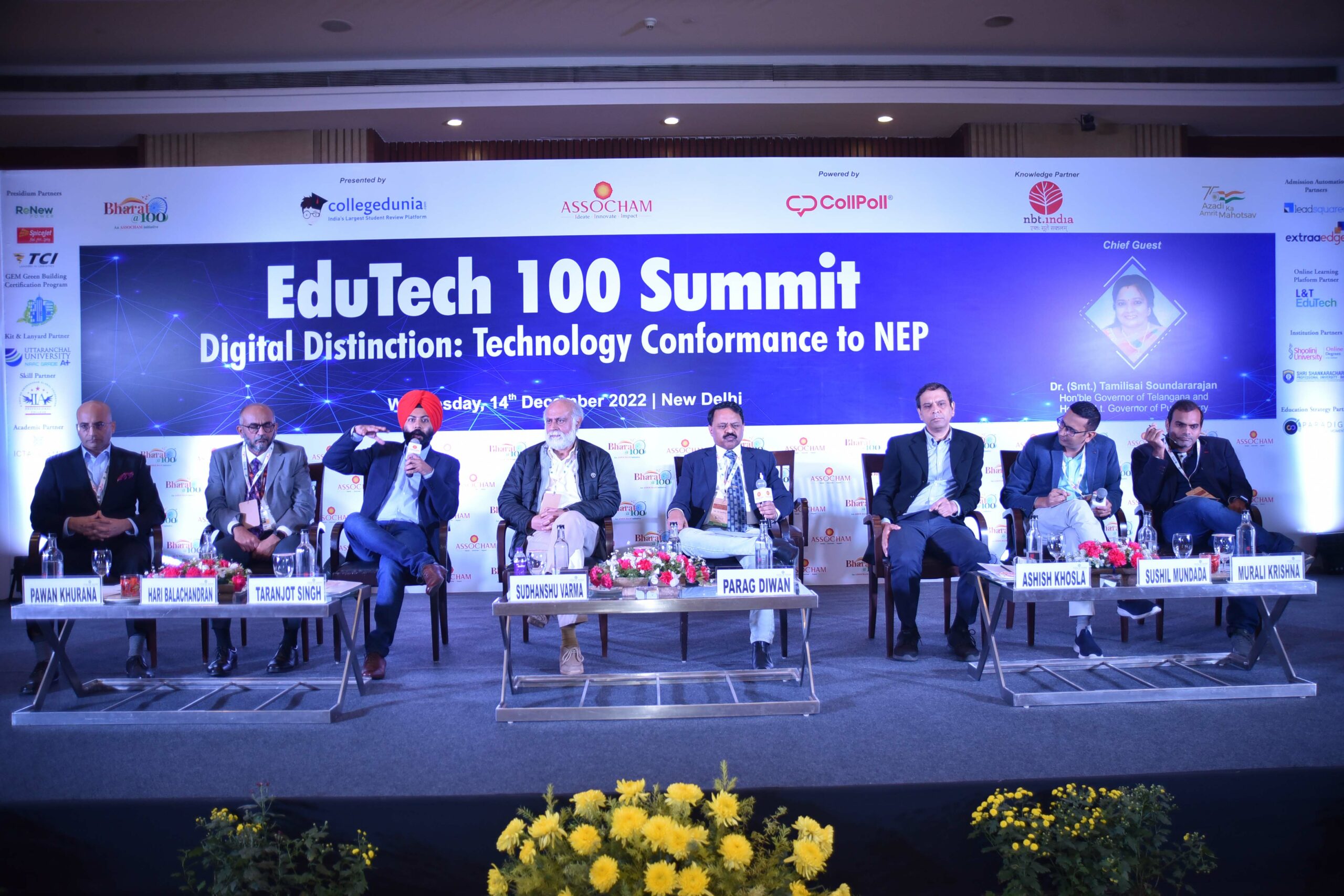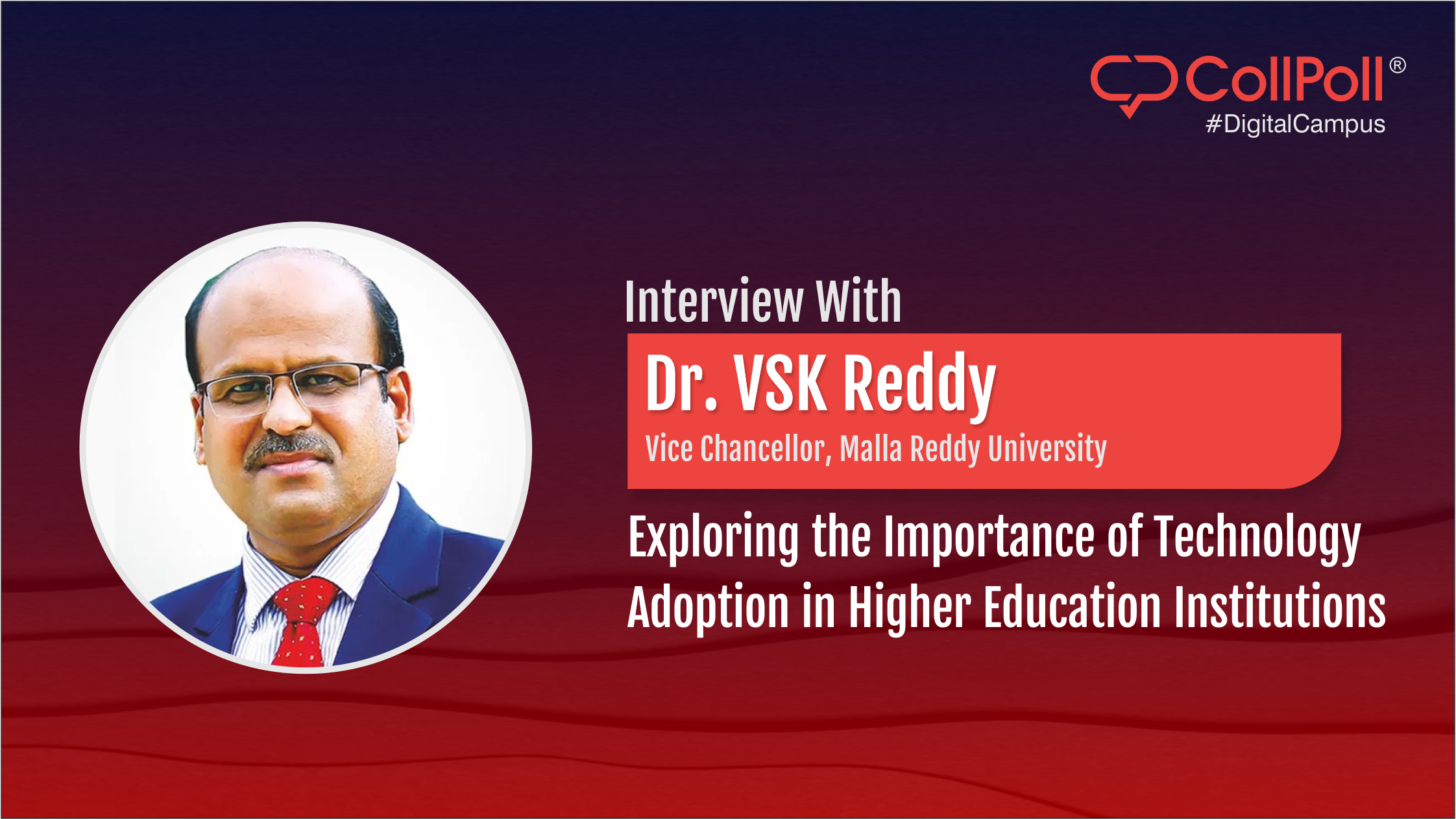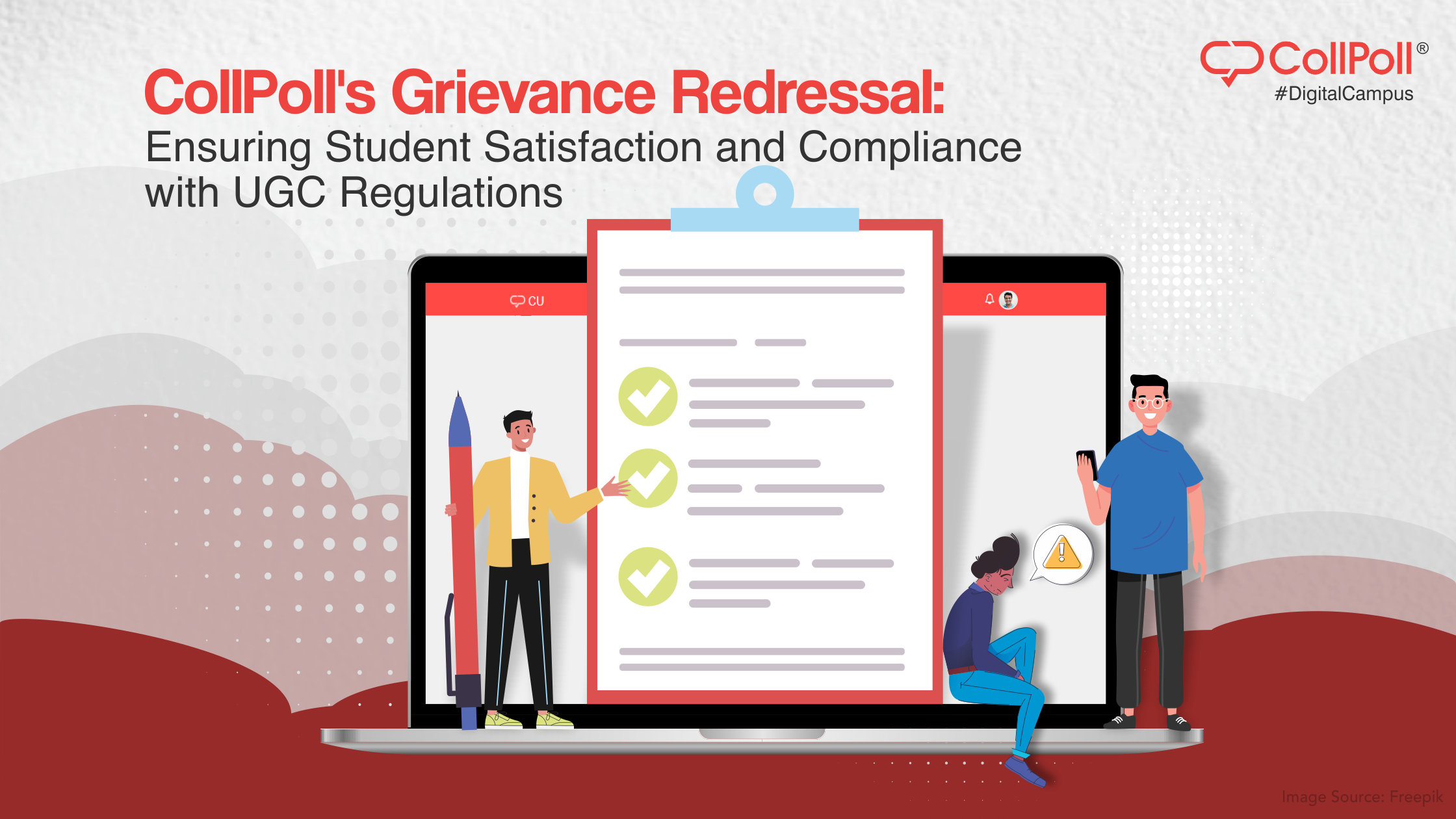The evolution of India into an extremely information-centric society has led to a technology-driven education system. As one of the critical principles of the New Education Policy (NEP 2020), the education system will use technology extensively to teach and learn in the near future. With digital transformation in the education sector, not only are the academics and administrative processes completely automated but the institutions also step towards adopting innovative solutions to enhance the online teaching and learning experience. From improved accessibility to time-saving processes, the use of technology has already made an impact in the education space.
The third-panel discussion of the EduTech 100 Summit 2022 on ‘Digital Distinction – Technology Conformance to NEP’ organised by ASSOCHAM and powered by CollPoll, focused on – Digital Transformation: Strategy & Roadmap – and was moderated by Dr. Parag Diwan, Chairman of Paradigm Consulting. Mr. Murali Krishna, Vice President – Sales, LeadSquared, Mr. Tarnjot Singh, AVP Sales, Collegedunia, Mr. Pawan Khurana, Co-founder COO, CertOnce, Mr. Sushil Mundada, Co-founder, ExtraaEdge, Dr. Ashish Khosla, Co-Founder, Shoolini University, Mr. Sudhanshu Varma, COO, Bennett University, and Mr. Hari Balachandran, CEO, ICT Academy shared their valuable insights on the topic of the session in the presence of prominent leaders and academicians from the technology sector.
Key Takeaways From the Session!
Dr. Ashish Khosla, Co-Founder of Shoolini University
- The biggest challenge in higher education institutions today is to increase the enrollment of students. And we cannot create this capacity through physical universities. It is through digital campus that we can deliver education on a larger scale.
- Using the right set of tools and technology is essential to train students for being employable in India and across the globe.
- The use of Artificial Intelligence is the future of education.
- There are 3 core types of challenges faced by higher education institutions:
- The mindset of both teachers and learners.
- Using the data to improve pedagogical outcomes.
- The ability to leverage technology and infrastructure.
Mr. Hari Balachandran, CEO of ICT Academy
- The government of India has certified about 1.5 million citizens to use digital services.
- The technology transformation has been very significant in democratising the entire learning and teaching processes.
- The pandemic has made higher education institutions adopt technology to deliver better learning outcomes and this transformation is happening on multiple folds.
- It is through the digital transformation that students today can easily access learning material online from anywhere and at any time.
- Artificial intelligence is transforming the recruiting and hiring processes, making it easier for students to apply for desired job roles.
Mr. Sudhanshu Varma, COO of Bennett University
- The challenges that HEIs face on this journey of digital transformation include:
- Proper investment in the right courses.
- The ability to adapt to the digital world.
- The pandemic has taught us to make a shift from physical classrooms to online learning that opens up opportunities for distance learning.
- Making faculty, administrators, and all the other stakeholders aware of the use of technology is very important.
Mr. Murali Krishna, Vice President – Sales, LeadSquared
- Understanding the importance of digital transformation in its core sense is a major challenge for institutions today.
- Digital transformation in itself is a journey. And to get all the stakeholders involved in this journey and automate all processes, institutions are required to perform proper monitoring and use the right tools at each step.
- Choosing the right set of tools and implementing them effectively is quite imperative.
Mr. Pawan Khurana, Co-founder COO, Certonce
- 3 key technologies which are making an impact in terms of digital transformation in the higher education sector are:
- Blockchain (to push degrees on digital platforms)
- NFTs (to monetize the research work and projects)
- Metaverse (to encourage greater participation by giving outside-the-classroom learning experiences)
- Every institution should adopt Blockchain to secure user data and eliminate any fraud.
- For intellectual property protection, licensing, and awards & recognition, higher education institutions can rely on NFTs.
Mr. Tarnjot Singh, AVP Sales, Collegedunia
- The adoption of digital transformation in higher education institutions mainly depends on the mindset of the people.
- Each and every process of an institution needs to be automated and monitored regularly and this requires a team that looks into the processes.
- The leaders of the education industry can most efficiently introduce the use of technology in institutions.
Mr. Sushil Mundada, Co-founder of ExtraaEdge
Digital transformation can be defined as 5 P’s:
- People: Having the right set of management and users of digital products and making them aware of the ‘why’ of digital transformation is necessary.
- Patience: Digital transformation is a continuous journey and its adoption requires patience to ensure long-term success.
- Practices: Documenting the product implementation and the steps of digital transformation is the best practice.
- Processes: Defining processes of the CRM, Admissions, LMS, etc. is crucial for proper implementation.
- Product: Lastly, choosing the right product based on the institution’s requirements leads to digital transformation.
The session focused on the importance of digital transformation for higher education institutions and promoting the use of technology on campus.
We are thankful to all the eminent speakers and the entire Assocham team for organising such an inspiring and insightful event. Together, we can promote a culture of learning and skills development for students and stakeholders!
Follow us on LinkedIn for more stories & updates: CollPoll

